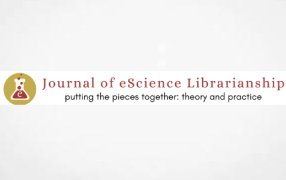Abstract
Objective: This case study sought to provide early information on the accuracy and relevance of selected GPT-based product responses to basic information queries, such as might be asked in librarian research consultations. We intended to identify positive possibilities, limitations, and ethical issues associated with using these tools in research consultations and teaching.
Methods: A case simulation examined the responses of GPT-based products to a basic set of questions on a topic relevant to social work students. The four chatbots (ChatGPT-3.5, ChatGPT-4, Bard, and Perplexity) were given identical question prompts, and responses were assessed for relevance and accuracy. The simulation was supplemented by reviewing actual user exchanges with ChatGPT-3.5 using a ShareGPT file containing conversations with early users.
Results: Each product provided relevant information to queries, but the nature and quality of information and the formatting sophistication varied substantially. There were troubling accuracy issues with some responses, including inaccurate or non-existent references. The only paid product examined (ChatGPT-4), generally provided the highest quality information, which raises equitable access to quality technology concerns. Examination of ShareGPT conversations also raised issues regarding ethical use of chatbots to complete course assignments, dissertation designs, and other research products.
Conclusions: We conclude that these new tools offer significant potential to enhance learning if well-employed. However, their use is fraught with ethical challenges. Librarians must work closely with instructors, patrons, and administrators to assure that the potential is realized while ethical values are safeguarded.
Keywords: GPT-based chatbot, ChatGPT, ShareGPT, knowledge practice, disposition, Socratic questioning, research consultation, artificial intelligence, AI
How to Cite:
Feng, Yali, Jun Wang, and Steven G. Anderson. 2024. “Ethical Considerations in Integrating AI in Research Consultations: Assessing the Possibilities and Limits of GPT-based Chatbots.” Journal of eScience Librarianship 13 (1): e846. https://doi.org/10.7191/jeslib.846.
Rights: Copyright © 2024 The Author(s). This is an open-access article distributed under the terms of the Creative Commons Attribution 4.0 International License (CC-BY 4.0), which permits unrestricted use, distribution, and reproduction in any medium, provided the original author and source are credited.
Read paper at
https://publishing.escholarship.umassmed.edu/jeslib/article/id/846/




